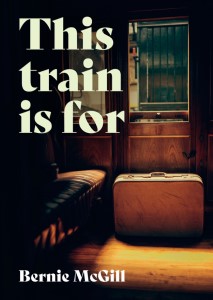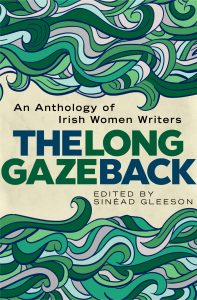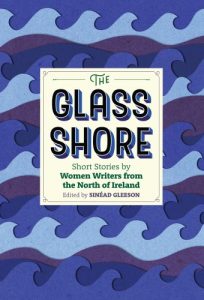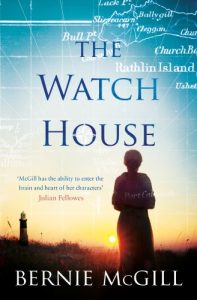Bernie McGill’s award-winning stories have been widely praised for their emotional depth and their lyrical language. She is a writer of profound sensitivity and observation. Her masterful deployment of linguistic precision and economy enables her to plumb the depths of human experience while neatly avoiding sentimentalism.
 This new collection, her first since 2013, contains unpublished stories along with a number of previously published stories featured within award winning anthologies. This Train is For is available to order from No Alibis Press.
This new collection, her first since 2013, contains unpublished stories along with a number of previously published stories featured within award winning anthologies. This Train is For is available to order from No Alibis Press.
‘This Train is For portrays the complexities of the heart with sensitivity and acute psychological insight. Rendered in the most perfect prose, Bernie McGill presents lives in physical and emotional transit, uncertain of the journey’s destination, understanding that sometimes the most important moments in our lives involve travelling not forward, but to moments we thought we had left long behind.’ David Park
‘Bernie McGill is one of the most accomplished short story writers in Ireland today. These stories contain powerful truths and unsettling revelations, delivered in the gentlest voice. An absolute joy of a collection from start to finish with not a word wasted or misplaced.’
Jan Carson
‘Wonderful stories of journeys geographical and of the inner kind.’ Bernard MacLaverty
‘Bernie McGill brings her precise, lyrical, deceptively quiet style to these stories in a collection that gleams. This Train is For is the work of a decade, and it shows; each story burnished; and a book that’s a beautiful addition to No Alibis Press.’ Lucy Caldwell
‘This Train is For is a dazzling exercise in compression, and an exemplification of what the short story form can achieve.’
Neil Hegarty, Fortnight Magazine
‘Beneath the exquisite surface – at once lyrical and plain-spoken – of each of these stories is carried a great freight of feeling that McGill handles with humanity and restraint. An excellent collection from one of the finest short story writers working in Ireland today.’ Louise Kennedy
‘Derry-born Bernie McGill’s second collection of stories has been eight years in the making, and it was worth the wait. There’s a welcome wit peppering the stories… closing lines that satisfy while leaving enough open to keep the reader thinking. It’s a rare achievement that McGill makes look easy. But the best story might be the last, In the Interests of Wonder, which takes an illusionist’s visit to a school and invests it with sinister strangeness. It reminded me of Thomas Mann’s great allegory of power and credulity, Mario and the Magician, and I can offer no higher praise than that.’
John Self, Irish Times
‘Bernie McGill’s new book of short stories is a collection of quiet majesty, featuring 12 perfectly crafted stories, all exploring moments of transition in the lives of the lost and the lonely. With a compassionate skill, these stories are like arrows in flight; we do not know where they have started from, or where they will land but the journey itself is what is important.’
Cathy Brown, Dig With It Magazine
‘The past returns unbidden in Bernie McGill’s artfully unsettling This Train is For, an intricately crafted collection of unexpected journeys through time and the stations of the heart. “This is what it feels like to travel through history,” observes the narrator of the title story as he contemplates the lost Irish place names of the North. The opening tale features echoes of Brian Friel’s play Translations (1980) in its reflection on “the altered landscape of the tongue” – a central theme which McGill makes her own. For the book is a modern meditation on the inextricability of language and history in Northern Ireland, a place where the naming of things, or the not-naming of them, encodes expression with additional layers of meaning.’
Dawn Miranda Sherratt-Bado, Dublin Review of Books
‘Like many masters of the short-story form, McGill can see into her characters’ hearts and minds with insight and precision, laying bare their deepest preoccupations for the reader to see. Her stories are quiet, subtle and poetic, often conveying the hidden sadness of life. She bears witness to the small rituals and moments of solitude when everyday life must continue, despite the grief, suffering and loneliness we all experience from time to time. [A Fuss is] a brilliant story in the style of William Trevor, especially in its depiction of a life blighted for the sake of respectability. Some of these stories seem deceptively simple on the surface, but as they unfurl, other, more poignant layers are revealed. ‘The House of the Quartered Door’ and ‘Glass Girl’ are excellent examples of this, both hinging on feelings of guilt and notes of ambiguity.’ JacquiWine’s Journal






